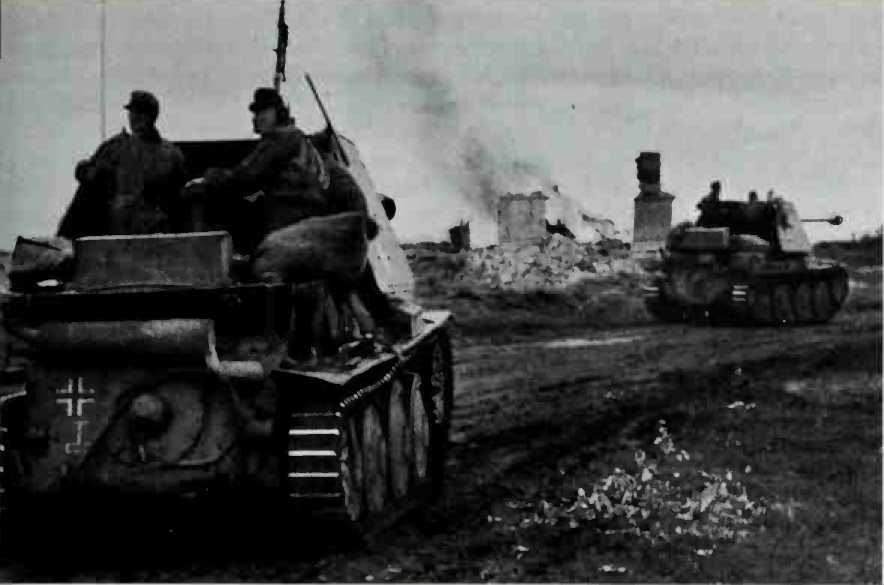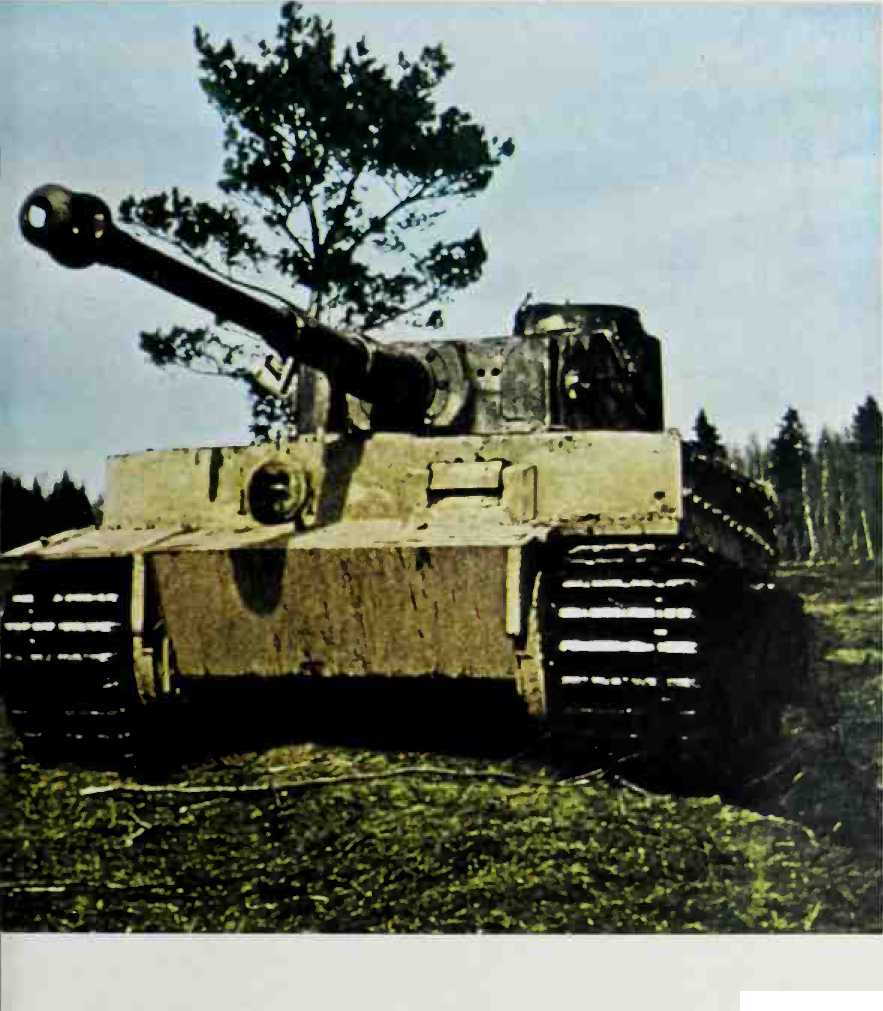Manstein had during the previous February and March declared his preference for a plan of operations radically different to that outlined in the order of April 15. He had told Hitler of this on the occasion of the Fiihrer’s visit to his H. Q. in Zaporozh’ye. In substance, his idea was to await the offensive that the enemy was bound to launch in order to recover the Donets basin. Once this had got under way, the Germans would conduct an orderly retreat to the Melitopol’-Dniepropetrovsk line, while at the same time a powerful armoured force would be assembled in the Poltava-Khar’kov region. Once the Russians had been led into the trap, this force would counter-attack with lightning speed in the direction of the Sea of Azov, and the superiority which
A A. d "Marder” self-propelled anti-tank gun passes a group of S. S. men who have occupied an abandoned Russian trench near Belgorod. Two captured Red soldiers can he seen in the middle of the group.
A Hauptmann (Flight-Lieutenant) Hans-Ulrich Rudel after receiving the Oak Leaves to his Knight’s Cross. Rudel destroyed 12 Russian tanks on the first day of "Zitadelle” and by the end of the war he had flown 2,530 operational sorties and destroyed 519 tanks.

A "Marder” III tank destroyers, German PaK 40 7.5-cm guns mounted on Czech T-3S chassis, move up through a shell-ravaged Russian village. These Marders were useful, but no real substitute for tanks.
V A Pzkw VI Tiger. These heavy tanks first appeared on the Eastern Front in 1942 and in Tunisia in 1943. Their armour, up to 100-mm thick, proved invulnerable to the fire of Allied 75- and 76-2-mm anti-tank guns.

German commanders had always shown over their Russian counterparts in mobile warfare would bring them victory.
"The guiding principle of this operation was radically different from that of the German offensive in 1942. We would attack by a counter-stroke at the moment when the enemy had largely engaged and partially expended his assault forces. Our objective would no longer be the conquest of distant geographical points but the destruction of the Soviet southern wing by trapping it against the coast. To prevent his escape eastwards, as was the case in 1942, we would entice him to the lower Dniepr, as it would be impossible for him to resist this.
"If the operation succeeded, with the consequent heavy losses he would sustain, we could perhaps strike a second blow northwards, towards the centre of the front.”
Certainly Manstein was under no illusion that the method he advocated could decide the war in favour of the Third Reich; but at least the situation would again be in Germany’s favour and she would obtain what Manstein terms a "putting off” and Mellenthin a "stalemate”, enabling her to bide her time. But Hitler did not agree with this line of argument, countering it with his usual economic arguments: Nikopol’ man
Ganese, for instance-"to lose Nikopol’ would be to lose the war” was his last word, and at the meeting in Munich, Manstein did not raise his plan again.




 World History
World History









